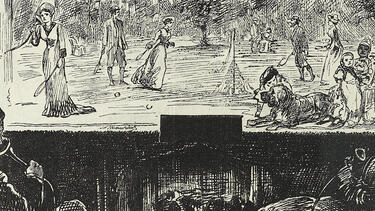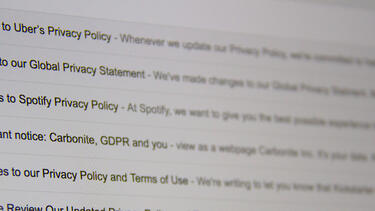Technology
How Millions of Simulated Maps Can Help Us Make Electoral Districts That Feel Fair
Part of resolving the political redistricting stalemate, writes Professor Jamie Tucker-Foltz, is creating congressional maps that align with human intuition about fairness.

SEC Settlement Won’t Fix Tesla
Tesla may have reached a settlement with the SEC, Yale SOM's Jeffrey Sonnenfeld writes, but the company's board still needs to address the problems created by its brilliant, self-destructive CEO.

Can Trusted Brands Beat ‘Fake News’?
Time Inc.’s chief content officer sees “fake news” as an opportunity for trusted brands in journalism to re-emerge—if they can find a business model.

Is CRISPR Worth the Risk?
Dr. Greg Licholai, a biotech entrepreneur and a lecturer at Yale SOM, explains the gene-editing technology’s potential and its dangers.

The Real Problem for Mark Zuckerberg Is Mark Zuckerberg
Since Facebook's stock structure guarantees CEO Mark Zuckerberg control, Yale SOM’s Jeffrey Sonnenfeld writes, its only hope is some brutally honest feedback from his star-studded board.

Is Videoconferencing Still the Future?
The age of the video call has arrived, just as science fiction predicted. Scott Wharton ’95, who leads video collaboration at Logitech, talks about the potential of videoconferencing and the steps needed to make it ubiquitous.

Can Technology Transform the Nonprofit Sector?
Nonprofits compete too. Could technology offer a means to improve performance, innovate, and deliver on mission?

Three Questions: Prof. David Bach on the Reach of European Privacy Regulations
A change to European privacy rules has unleashed a flood of emails about updated privacy policies to customers all over the world. We asked Yale SOM’s David Bach why.

Could Better Predictions Improve End-of-Life Care?
A statistical tool that predicts when patients with advanced cancer are likely to die could help promote patient welfare by transferring more people from aggressive interventions to hospice care.

Three Questions: Prof. Jack Balkin on Facebook and the Risks of ‘Data Capitalism’
What does the Facebook-Cambridge Analytica scandal say about the risks of trusting Facebook and other tech companies with our data? We talked with Yale Law School's Jack Balkin.
Mark Zuckerberg Says He’s Sorry. Where Is the Genuine Contrition?
The CEO of Facebook is apologizing to Congress for the company’s misuse of user data. But real contrition, Yale SOM’s Jeffrey Sonnenfeld writes, means explaining what you did wrong and making sure it doesn’t happen again.